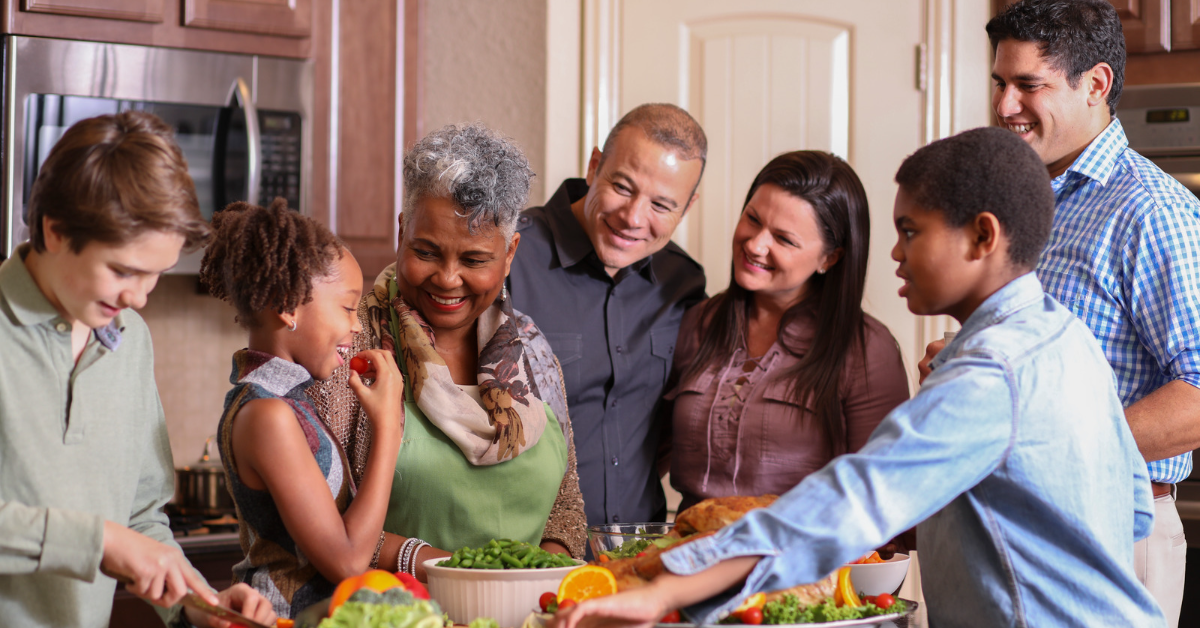
For people newly diagnosed or trying to get a handle on living with type 2 diabetes, the holidays can be challenging to navigate. Here are some ways to plan ahead and make your holiday gathering experiences easier.
The holidays are here and, for a lot of us, that means traveling to a friend’s and family’s home — being a house guest.
Unlike traveling on your own, where you can set your own schedule and pick your surroundings, when you are a guest in someone’s home you will occupy their space and join their routine. All this while still managing your diabetes care routine. It can feel a little tricky at first, but that’s no reason to not enjoy your visit.
A gracious host will ask their guest if they have any special needs or preferences.
A good host wants their guests to be comfortable in their house. This can mean a lot of different things. Accommodations can be made, but you cannot expect your host to change household routines and rules drastically. In any event, the host can only make any changes if they know what is needed.
A courteous guest will be honest with their needs and preferences.
You cannot expect your host to know what you need if you don’t tell them. When you tell your host you need to take your medication half an hour before eating, for example, you aren’t being needy or rude. You’re being open and honest.
However, managing your diabetes care is still your responsibility. Here are a few things to consider.
Be prepared by bringing everything you need for your diabetes care with you (medications, testing supplies, etc.) and to take any medical waste away with you. Remember sharps which need to be disposed of properly and your host may not know how to take care of this.
Be willing to be discreet with your diabetes care. You may be used to checking your glucose levels at the dinner table, but that may not be the norm in your host’s house. It’s not that you need to feel ashamed of your diabetes, but rather you’re being respectful of your host’s (and their other guests’) sensibilities.
Let the host know if you need time set aside to take care of your diabetes care routine. For instance, if you get up extra early to take a run, let your host know and work out how you can do this without disturbing the rest of the household.
If you follow a particular diet let your host know this. While you cannot expect your host to change their menu completely or drastically, it gives your host the opportunity to make adjustments.
Offer to make or bring a dish or meal that satisfies your dietary practices. If you do end up cooking something, do it in a way that doesn’t disrupt the rest of the household and its routine. Think about prepping ingredients beforehand. Offer to buy any special ingredients that the host wouldn’t otherwise have in their pantry.
Be flexible. Know that you will probably experience disruptions to your diabetes care routine. There will be celebratory gatherings and food. And as joyful as any holiday can be, it can also be stressful. Your glucose levels will, most likely, be out of range at some point. Routine exercise might be missed or have to be rescheduled. You’ll find yourself eating things that you normally don’t. Remind yourself that, while diabetes doesn’t take a holiday, you are taking time to enjoy the holidays. Any disruptions will only last a few days and won’t undo all of your other efforts.
Thank your host for the enjoyable time and their hospitality. Every good guest makes a point of thanking their host. This is especially important when you know your host has made special arrangements for you. Whether with a quick note or a small gift, giving thanks shows your appreciation and will be welcomed by your host.
Being a holiday house guest with diabetes can be one more source of stress. But with a bit of thinking and planning upfront, it doesn’t have to derail your care routine or get in the way of enjoying the celebrations.

